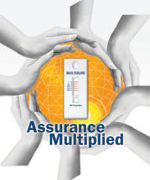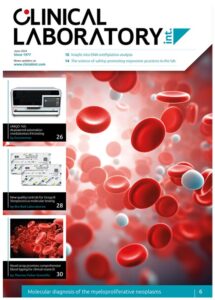Immunochromatographic assay for hepatitis C virus
It has been estimated that 3 to 4 million people are infected with hepatitis C virus (HCV) each year. Four out of five people develop chronic hepatitis C infection, which can subsequently lead to liver cirrhosis and/or liver cancer. Early detection is the key to combating hepatitis; hepatitis C infection can be effectively controlled or treated if it is diagnosed early. HCV ELISA and rapid tests are widely used for screening and diagnosis of hepatitis C infection. These tests use specific antigens from the structural region and non-structural regions of the virus to detect the presence of antibodies to HCV. Reactive samples from screening tests are then confirmed by immunoblot assay. The MULTISURE HCV Antibody Assay is a qualitative immunochromatographic assay, intended for the detection of antibodies specific to HCV core, NS3, NS4 and NS5 antigens. The test is based on the capture of HCV antibodies using immobilised HCV recombinant antigens on a nitrocellulose membrane and the subsequent detection of captured analyte using goat anti-human IgG conjugated to colloidal gold. It has been developed from the patented reverse-flow test platform, giving greater sensitivity and easy-to-read visual signals. Similar to a confirmatory immunoblot, this assay can detect and differentiate the structural and non-structural HCV proteins. The test result pattern may, therefore, offer information such as the possible phase of the Hepatitis C infection. This simple and rapid assay takes only 15 minutes and is easy to use. It is an instrument-free platform and does not require highly trained personnel to perform the test, thus making it suitable for use in a point-of-care setting. With shortened turnaround time, patients are diagnosed early and have wider access to treatment and care.



